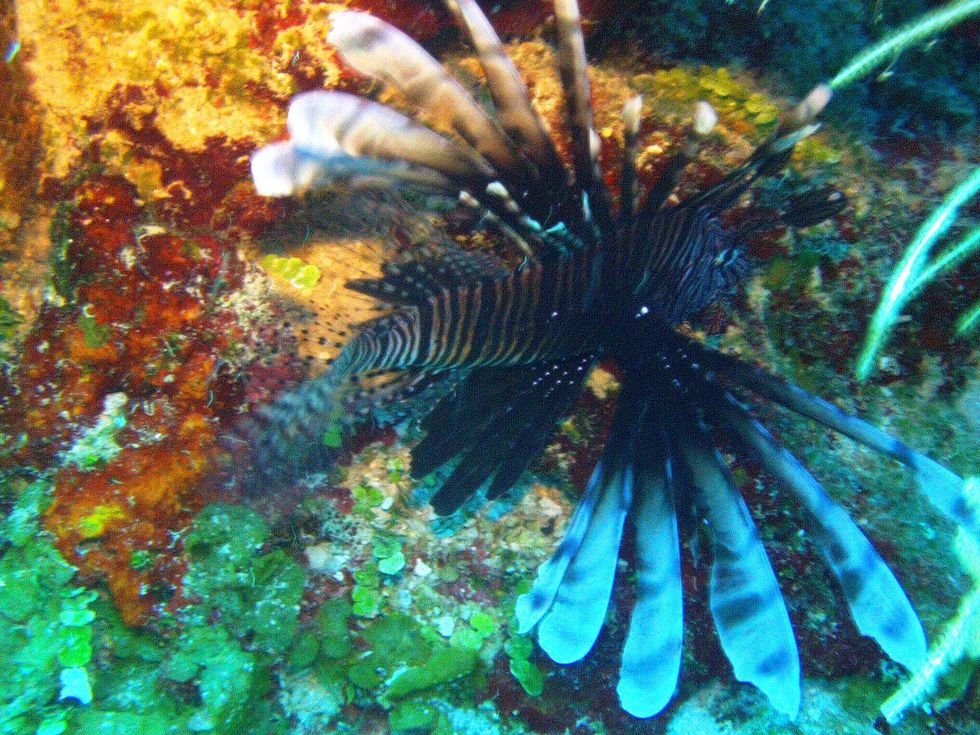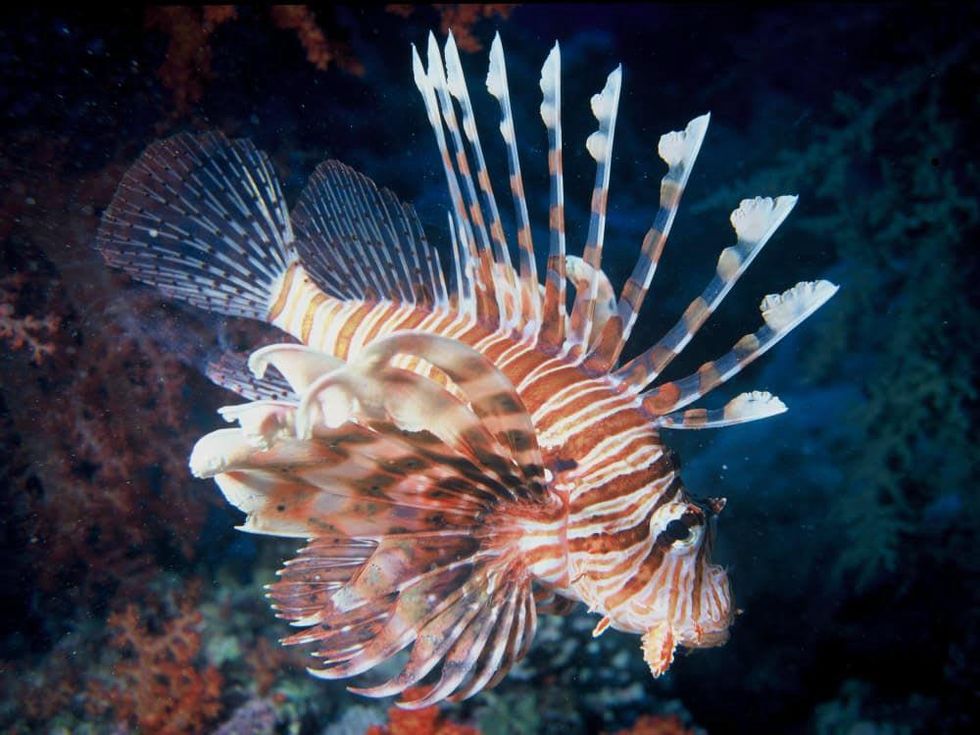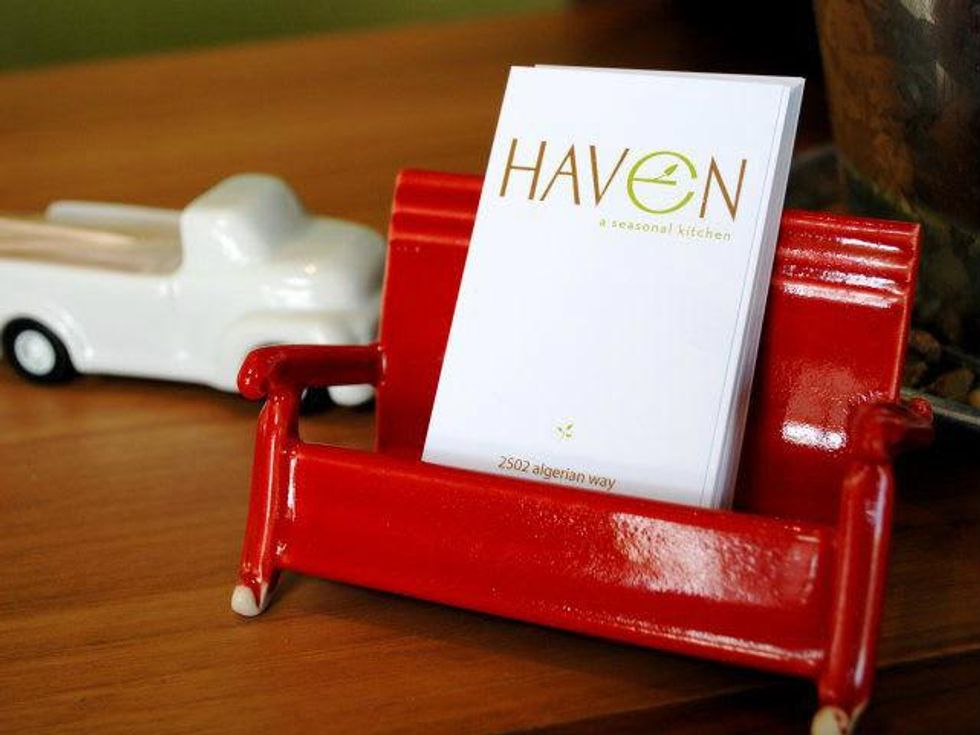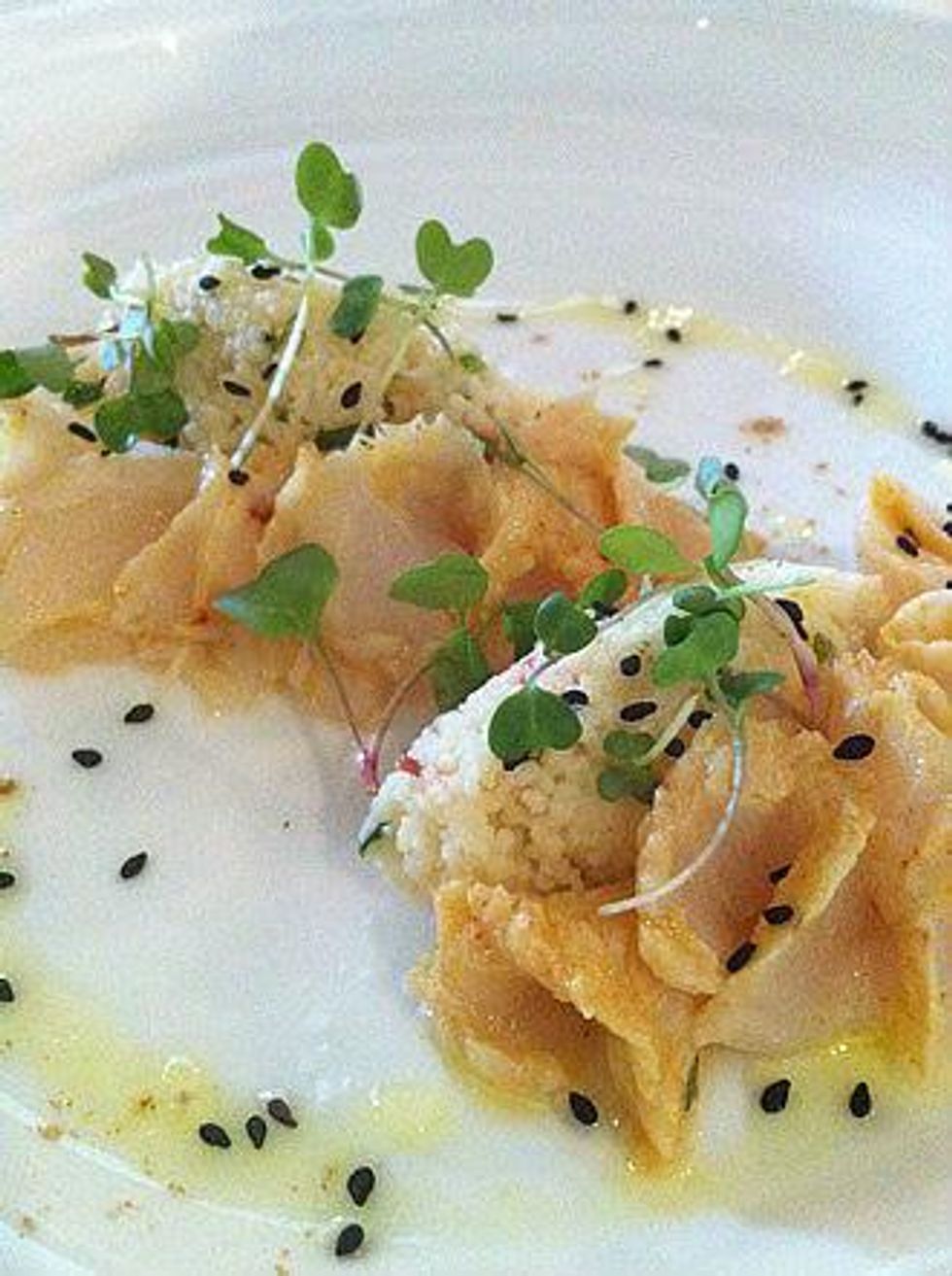Eat More Lionfish
Doing a good deed has never been so delicious
I went to Cove Bar, part of the Haven Restaurant in Houston, for the express purpose of eating a lionfish. This invasive species is wreaking havoc throughout the South Atlantic Ocean, Caribbean Sea and Gulf of Mexico, and scientists and government officials have recently concluded that the only hope of controlling it is for people to start eating them.
Restaurants in Quintana Roo, Mexico (home of Cancun, the Riviera Maya, and Cozumel), regularly serve lionfish, as do a few in Florida. But so far, Haven is the only place in Texas where you can order it on a regular basis — and event there, it's available only in the bar. Chef Jean Philippe Gaston says that supply is the main restraint. Originally, he bought lionfish from a small fishing cooperative in Mexico, but logistics proved difficult. Now he orders it from a U.S.-based supplier, who is able to provide only limited quantities. With time, that should change.
Four bar seats face the area where Gaston prepares a variety of internationally themed delicacies, from sashimi to ceviche, crudo, mana, steak tartare, and the lionfish dish, Poisson Cru. He places a sizeable fillet on the board, deftly slices it into strips and lays them out on a dish. He mixes coconut milk with ginger and chiles in a bowl, pours it over the fish and adds morsels of fresh orange and olive oil. I enjoy it with a gimlet made with Tito’s Ruby Red vodka, an excellent complement to the flavors. Cove Bar also serves a list of wines by the glass and bottle, a selection of draught and bottle beers and daily drink specials.
Downing my plate of lionfish, I’ve not only enjoyed a delicious appetizer; I’ve done a good deed, as well. Lionfish, native to the Western Pacific and Indian Oceans, arrived in our part of the world via the aquarium trade, meaning someone dumped an unwanted pet lionfish or two. The fish began to spread, slowly at first, and then more rapidly. They’re now found from Massachusetts to South America, on shallow reefs and in deep waters, and in just about every kind of ocean environment. They’re practically professional reproducers; a single female can produce two million eggs a year.
In the territories lionfish have invaded and occupied, they have no predators and plenty to eat, downing everything from small reef fish to commercial species such as snapper. They’re known to be responsible for dramatically reducing native fish populations.
Across the Caribbean and in Florida, conservation and diving organizations have held lionfish derbies, typically weekend events where scuba and free divers spear as many as they can. Scientists say that’s helping, but it’s not enough. Creating a commercial fishery for lionfish may be our last, best hope.
Which brings us back to The Cove Bar, where the daily menu features the invaders. Haven Restaurant also holds periodic six-course dinners, each course featuring the tasty fish. Consider eating as much as you can. It's your civic duty, after all.




